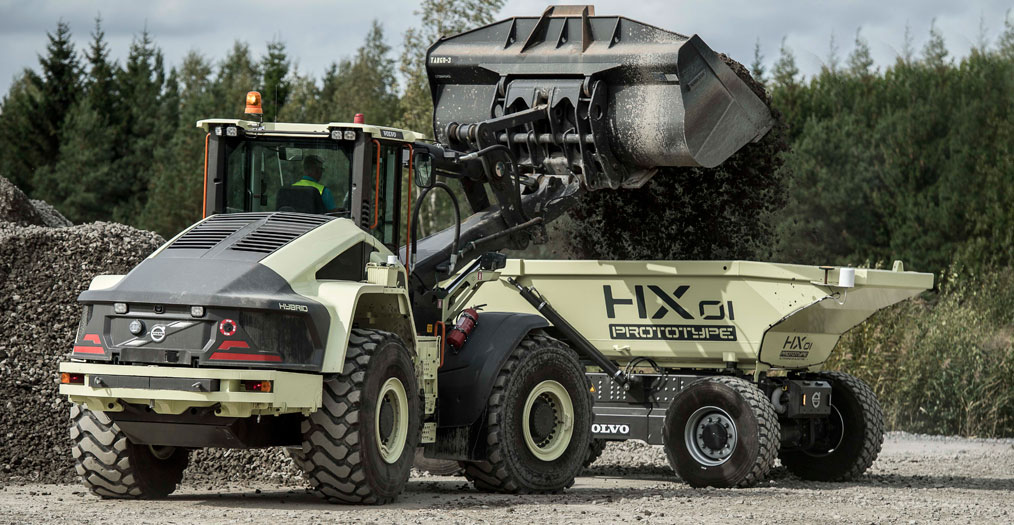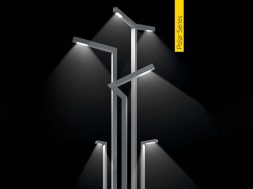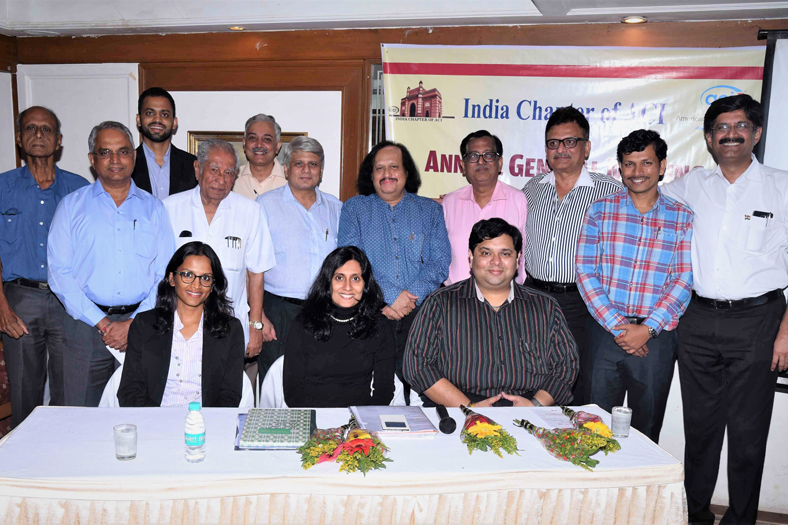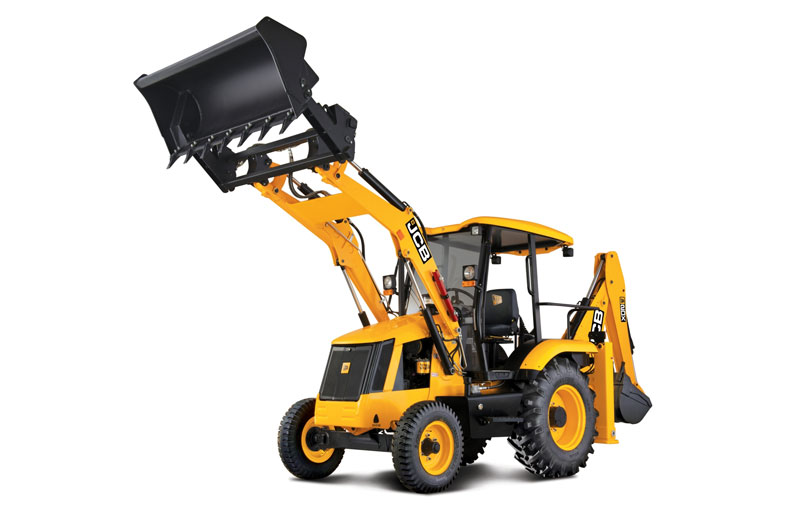Intelligent machines to pave the way for sustainable construction

To help achieve its goals, the company has a clear focus on electro-mobility, intelligent machines and total site solutions. The company believe this will help achieve its ambitious goals and pave the way for a sustainable construction industry
Prototype autonomous wheel loader and articulated hauler
Informing on the breakthrough technology Dimitrov Krishnan, Vice President and Head of Volvo CE India says, “For us, the most significant breakthrough was an exclusive demo of our prototype autonomous wheel loader and articulated hauler working together. We staged this demo for international visitors during our Xploration Forum at the end of last year. The machines are based around standard Volvo products – a L120 wheel loader and an A25F articulated hauler –which were upgraded with autonomous technology.”
During the demonstration at the event, the prototype wheel loader filled the prototype articulated hauler – before dumping its load and repeating the cycle. In a one-hour comparison the autonomous wheel loader reached the equivalent of 70 per cent of that of a skilled operator’s productivity levels when loading and unloading.
He add, “The demonstration machines were programmed to work together and carry out a specific set of actions on a pre-defined route. They can perform the same task over and over again, along a fixed route, for a relatively long period of time. But it’s still early days for this technology, so there are no plans for industrialisation yet.”
Currently these prototypes don’t communicate with each other and machine-to-machine communication is crucial to avoiding collisions and delivering efficient equipment flow around a job site. “But we do know that autonomous machines will increase safety in hazardous working environments and eliminate the possibility of accidents caused by human error. They will also perform repetitive tasks more efficiently and precisely than human operators and because they operate in the most efficient way, customers will benefit from improved performance, productivity, fuel efficiency and durability,” he says.
We see situations in the future where there could be one operator for three or four machines, increasing productivity and further decreasing costs. Plus, future machines will most likely be more robust and smaller – for a start, there will be no need for a cab or suspension.
Our work on autonomous machine research has been going on for more than a decade. Its focus on futuristic technology such as semi-automated or automated functions will also support more immediate developments which customers will see sooner. Although, clearly it will take many years to realise the ultimate goal of full automation.
“In fact, we already have examples of automated and assist-functionalities on the market. Last year we presented the Volvo Co-Pilot that offers a range of intelligent machine services – Load Assist, Dig Assist, Compact Assist and Pave Assist – to help operators deliver higher quality outcomes, in less time and with less effort. Further breakthroughs can be expected as we move forward,” he shares.
Prototype hybrid wheel loader
The most advanced technology presented by Volvo CE last year was prototype hybrid wheel loader – known as the LX1 –which debuted alongside our HX1 carrier. The prototype loader can deliver up to a 50 per cent improvement in fuel efficiency. On top of this, the LX1 also offers a significant reduction in emissions and noise pollution compared to its conventional counterparts.
The LX1 is a series hybrid that incorporates a driveline consisting of electric drive motors mounted at the wheels; plus electric hydraulics, an energy storage system, a significantly smaller diesel engine as well as completely new machine architecture. When combined, this design and technology enables the new machine to deliver a substantial gain in fuel efficiency. The prototype – which has 98 per cent new parts and a fundamentally new machine design – is capable of doing the work of a wheel loader that’s one size larger. At this stage, the LX1 is part of a research project and is not commercially available.
How technology is transforming the construction industry
Volvo CE, has set four key technology challenges that it calls Triple Zero and 10x: zero emissions, zero accidents, zero unplanned stops and 10x higher efficiency. To help achieve its goals, the company has a clear focus on electro-mobility, intelligent machines and total site solutions. The company believe this will help achieve its ambitious goals and pave the way for a sustainable construction industry.
Its ‘zero’ targets have been clearly defined: Zero emissions will help make customers’ businesses more environmentally sustainable.
Zero accidents will come from pioneering safety innovations where machines could instinctively avoid accidents – generating a completely safe working environment. Zero unplanned stops will create a world without machine breakdowns, where machines predict and plan their own maintenance – making unplanned stops a thing of the past.
Meanwhile, its 10x higher efficiency goal is directly connected to the electrification of construction equipment and site optimisation, which we believe will dramatically reduce energy consumption.
Revealing his view on how the technology is transforming the construction industry Krishnan says, “At Volvo CE we are developing technologies connected to electro mobility, intelligent machines and total site solutions that will benefit our customers and the environment by contributing to increased machine performance, productivity, efficiency, safety and sustainability. We are at the forefront of technological development and each year our parent organisation, the Volvo Group, invests billions in R&D to drive the evolution of new innovations.
Cookie Consent
We use cookies to personalize your experience. By continuing to visit this website you agree to our Terms & Conditions, Privacy Policy and Cookie Policy.









